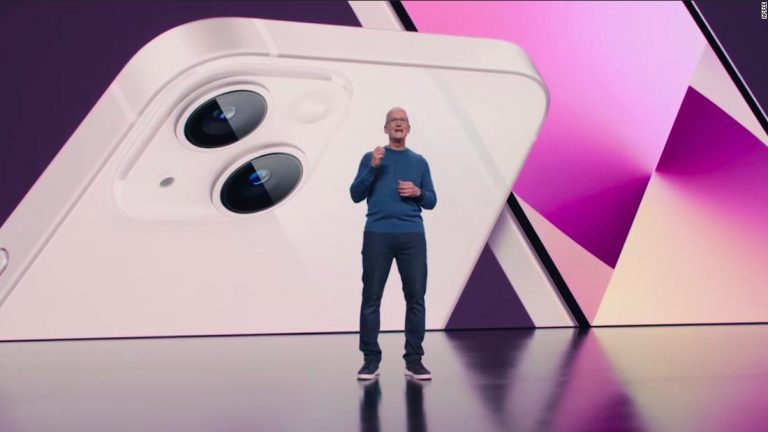
Apple has announced a partnership with Alibaba to bring artificial intelligence (AI) features to iPhones in China, marking a crucial shift in its strategy to revive smartphone sales in the world’s largest smartphone market.
The move comes as Apple Intelligence, the company’s new suite of AI-powered features, remains unavailable in China, a major disadvantage against domestic rivals like Huawei and Xiaomi, which have aggressively integrated AI into their latest devices.
Speaking on the partnership, Alibaba chairman Joseph Tsai expressed his company’s enthusiasm for collaborating with Apple. He stated that Apple had spoken to several companies in China before ultimately deciding to partner with Alibaba, as they wanted to use its AI to power their phones.
Register for Tekedia Mini-MBA edition 19 (Feb 9 – May 2, 2026).
Register for Tekedia AI in Business Masterclass.
Join Tekedia Capital Syndicate and co-invest in great global startups.
Register for Tekedia AI Lab.
“They talked to a number of companies in China. In the end they chose to do business with us. They want to use our AI to power their phones,” Alibaba chairman Joseph Tsai said. “We feel extremely honoured to do business with a great company like Apple.”
While Apple’s deal with Alibaba is a strategic move to address its competitive struggles in China, it also represents a new approach by global tech companies caught in the escalating tech and trade war between Beijing and Washington. As both countries increase restrictions on AI and advanced semiconductor technologies, American and Chinese companies are turning inward, forming domestic partnerships to stay competitive while avoiding regulatory pitfalls.
AI breakthroughs from China, such as DeepSeek, are already being blocked from entering the US as Washington ramps up national security measures to curb China’s progress in artificial intelligence. Meanwhile, American AI models—including OpenAI’s ChatGPT—are not available in China due to Beijing’s strict regulatory framework on foreign AI companies.
With neither side willing to allow foreign AI dominance within their borders, a new pattern of domestic AI partnerships is emerging. In the US, companies like Apple, Microsoft, and Google are building AI ecosystems around homegrown AI labs, avoiding reliance on Chinese advancements. In China, tech giants such as Alibaba, Baidu, and Tencent are stepping in to fill the void left by restricted access to American AI models.
Apple’s partnership with Alibaba aligns with this new reality. Instead of relying on OpenAI’s ChatGPT, which powers Apple Intelligence outside China, Apple is turning to a Chinese company to provide AI capabilities within the country—ensuring it remains compliant with Beijing’s rules while keeping up with domestic competition.
China has implemented strict AI regulations that require all generative AI models to be registered and approved by the government before they can be made available to the public. Companies must ensure their AI outputs align with government guidelines on censorship and security. These restrictions have made it impossible for Apple to simply bring its AI model from the US into China, forcing it to rely on local partners like Alibaba.
According to a report from The Information, Apple is also working with Baidu on an AI-powered search feature capable of handling both images and text, alongside planned upgrades to the Chinese version of Siri.
While the Alibaba deal is significant, it is unclear whether Apple will also partner with Tencent, ByteDance, or DeepSeek, all of whom were initially evaluated for their AI capabilities. Apple and Alibaba have already submitted materials to Chinese regulators for approval of their AI-powered features, underscoring the company’s careful navigation of China’s regulatory landscape.
Apple’s AI rollout in China is not just about compliance—it is a matter of survival in an increasingly difficult market. The company has been losing ground to domestic competitors, with iPhone sales experiencing a significant decline in 2024. In the fourth quarter of 2024, Apple dropped to third place in China’s smartphone market, trailing behind Huawei and Xiaomi.
Analysts attribute Apple’s decline in China to several factors. Chinese consumers are rapidly embracing AI-powered smartphones, and Apple’s failure to introduce AI in China has put it at a disadvantage. With the return of Huawei’s 5G smartphones, powered by homegrown Kirin chips, many former iPhone users have switched to Huawei. Apple’s premium pricing strategy is also becoming harder to justify in China, where brands like Xiaomi offer flagship AI-powered phones at lower prices.
Apple’s reliance on Alibaba for AI in China is a clear sign that the tech war between the US and China is leading to a complete decoupling of AI ecosystems. In the US, former President Joe Biden’s administration intensified efforts to restrict China’s AI progress, banning the export of advanced Nvidia chips used for AI model training. Washington is also considering new regulations that would prevent US companies from investing in Chinese AI startups.
In China, authorities are tightening data security and AI regulations, ensuring that all AI models comply with government policies before deployment.
This means that Chinese AI models like DeepSeek will never be allowed into the US, just as ChatGPT and other US-developed AI tools are banned in China. The result is that American companies must rely on US AI models and Chinese companies must rely on domestic AI models, leading to a world where AI innovation is increasingly divided along geopolitical lines.
With Apple’s smartphone sales declining in China, the company is under pressure to adapt to the country’s AI-driven smartphone revolution. Analysts believe that if Apple successfully integrates Alibaba’s AI into iPhones, it may win back some market share. However, time will tell the extent of the partnership and whether Alibaba’s AI capabilities can match the competition from Huawei and Xiaomi.



